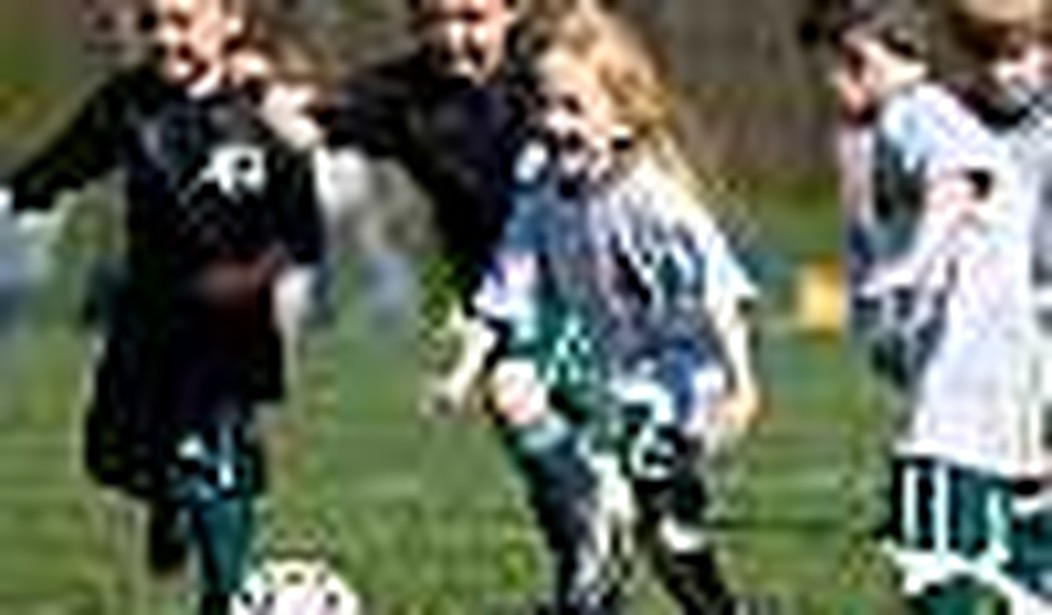There was a time when Britain had a reputation for excelling in competitive sports. These days, however, the experience of children engaging in competitive sports comes with a health warning. Since the 1980s, many schools have drawn the conclusion that team sports are an outdated and psychologically risky masculine vice that should be heavily regulated if not banned altogether.
A bit of a problem for a nation that will host the Olympics in 2012; that is why Prime Minister Gordon Brown announced that the nation needed to have more competitive sport at school. He stated that his government had begun to “correct the tragic mistake of reducing the competitive element in school.” Brown’s announcement is unlikely to undermine the powerful cultural crusade against children’s natural instinct to compete against one another. It is worth noting that back in 2000, a government minister, Chris Smith, promised to put competitive sport “back on its feet.” Three years later a member of the Cabinet, Charles Clarke, argued that it was “ridiculous” to ban competition on school sports days, and last year another minister, Alan Johnson, stated that it was “absurd and perverse political correctness” that led to the outlawing of this practice.
Unfortunately, the challenge of reversing this “tragic mistake” faces formidable obstacles. The ideals associated with a sporting ethos are bitterly opposed by a formidable army of educators, psychologists, and health professionals who contend that competition threatens the emotional well-being of children. They claim the spirit of competition sends the wrong signals since it undermines cooperative behavior. Apparently, children who fail to come in first suffer long-term trauma and their self-esteem risks becoming damaged for life.
That is why the English Football Association has recently ruled that the results of matches between children aged seven and eight must not be published. It also banned the publication of league tables and the giving out of prizes. Some local soccer associations have extended these bans to cover 9-, 10-, and 11-year-olds. Some politicians would like to ban competitive sports altogether. One member of Parliament, Sandra Gidley, described sports days as her “pet hate” and accused schools of being insensitive to the feelings of children with little athletic ability.
The crusade against the ethos of competition is always in search of new arguments.
In early September, a report published by Loughborough University came up with the ridiculous conclusion that an overemphasis on competitive team sports has led to the decline of physical exercise in schools. As a result, pupils are not learning about politically correct forms of exercise such as aerobics and pilates. In reality, British state schools find it difficult to affirm the ideals of competitive sports.
Official figures show that the number of school children who are not involved in sports rose by over a million last year. Many schools regard contact sports with dread. Others have introduced so-called “cooperative games” where there are no losers. Anti-competition crusaders advocate a carefully managed form of therapeutic sporting education for children. They believe that children gain great psychological benefits from cooperative sport since everybody receives applause and gains in self-esteem. In reality, children gain nothing from the manufactured forms of tokenistic rituals that accompany such emotionally correct gestures. When every child receives a prize for “trying their best,” the youngsters readily see through the empty gesture. Even at an early age they understand that when nobody loses, nobody wins.
The main consequence of the stigmatization of competition is that it reduces children’s ambition and lowers their expectations. Children today, like those of previous generations, will certainly continue to engage with each other through cooperation as well as competition. Learning to do both is an essential dimension of human development. But if kids are discouraged from participating in competitive activities, their ability to learn how to manage success and failure will be undermined. In particular, they will never understand that losing is not synonymous with failing and that coming in second or third — or even last — can provide them with lessons about how to do better in the future.
Yes, losing may be painful. But the consequences of not being exposed to the spirit of competition are far more damaging then the temporary setback of losing a game.









Join the conversation as a VIP Member